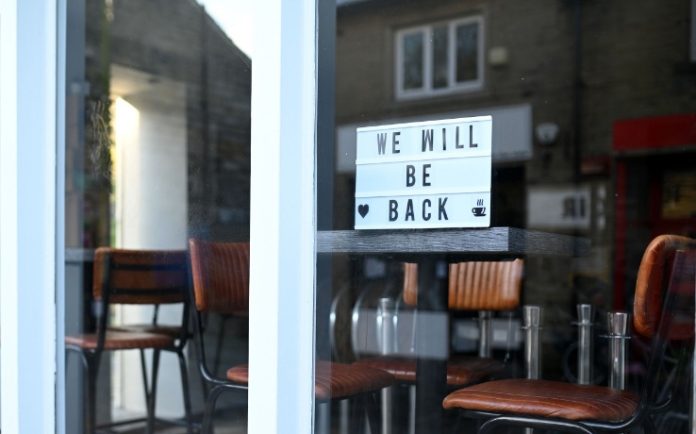The UK government has withdrawn guarantees on about £1bn ($1.2bn) worth of bank loans to sick businesses during the COVID-19 pandemic, according to Reuters.
State-owned British Business Bank (BBB), which runs the lending schemes, has removed government guarantees from 10,786 loans totalling £979m as of 11 October, protecting taxpayers from some losses.
The amount so far represents only a small fraction of the £77bn of loans issued, a move that follows pressure from lawmakers and the UK’s public spending watchdog, which accused the schemes of being too lenient. According to the latest figures, only £17bn had been fully repaid by borrowers as of 30 June, so the figures could rise further.
Dozens of lenders, including the Big Four banks, Barclays (BARC.L), NatWest (NWG.L), Lloyds (LLOY.L) and HSBC (HSBA.L), have taken part in the government-backed programmes. Representatives for Barclays and HSBC declined to comment, while representatives for the other two banks were unavailable.
Britain’s emergency lending schemes have much in common with government finance initiatives used around the world to support companies during prolonged downtime, but the full cost and who will end up paying the various bills has only now come to light.
Three sources familiar with the situation told Reuters that government officials have tightened control over the schemes in a bid to ensure better value for money, while ministers are reviewing the strained public finances ahead of a key budget update later this month. A spokesperson for the UK’s business department said of the loan schemes, adding that where necessary it was working with lenders to remove guarantees to protect taxpayer money:
In unprecedented times, we stepped up to support the country.
Representatives of banking lobby group UK Finance said lenders were in regular talks with the BBB, with some removing loans from the guarantee at their own discretion. Lenders who have responded to government calls to maintain the flow of credit to the shock-hit British economy until 2020 have done so through three main schemes. The largest and most controversial scheme, the Bounce Back Loan (BBL), provided £47bn and was specifically designed to help the smallest UK firms stay afloat.
Participants could simplify typical credit checks to lend up to £50k within hours of application. Under the terms of BBL, the government assumed 100 per cent of the credit risk. However, according to a response to a FOI request, some lenders found they could not qualify for this guarantee. According to the BBB, once this guarantee is cancelled, all financial losses are fully borne by the lender.
Guarantees were withdrawn for various reasons, including data corrections, errors in applications that caused “duplication” of funds in companies, and violations of scheme rules.
Potential irregularities could include evidence of unfair treatment of borrowers, a source said. The BBB has the right to offset some of the lender’s future claims for repeat offences but has not done so so far, the source added. The errors were identified voluntarily by the lenders themselves or after discussions with the BBB, the enquiry said. All lenders involved in the term loan programmes have undergone at least one review, the BBB said.
Reuters requested data on the withdrawal of state guarantees broken down by creditor, but the BBB refused, citing that it could “harm their commercial interests”. The BBB said it had sought the views of creditors on whether the information could be disclosed and they had agreed.
The latest figures for all schemes, published in September, showed that the amount of alleged fraud across all schemes had reached £1.7bn as of 30 June, a 43% increase on the previous estimate made in March.
The data also showed that the Government had paid creditors £7.4bn in government guarantees. A UK Finance spokesperson said:
Lenders are doing all they can to ensure loans are repaid as well as taking action to tackle fraud.
Another source said suspicions of fraud are not always grounds for removing the guarantee if the lender otherwise complies with the scheme’s rules.
A second source who helped design the scheme said on condition of anonymity it should not be surprising that loans that banks would not normally consider were causing problems, and added that lenders had raised their concerns at one time.
The BBB had also raised its concerns prior to the launch of the BBL scheme. In a letter to the government in May 2020. BBB warned that the scheme was “vulnerable to abuse by individuals and organised crime actors”. In a response the same month, the government said it had assessed the risks but decided to go ahead with the launch, citing the “unprecedented situation prevailing in the country”.
